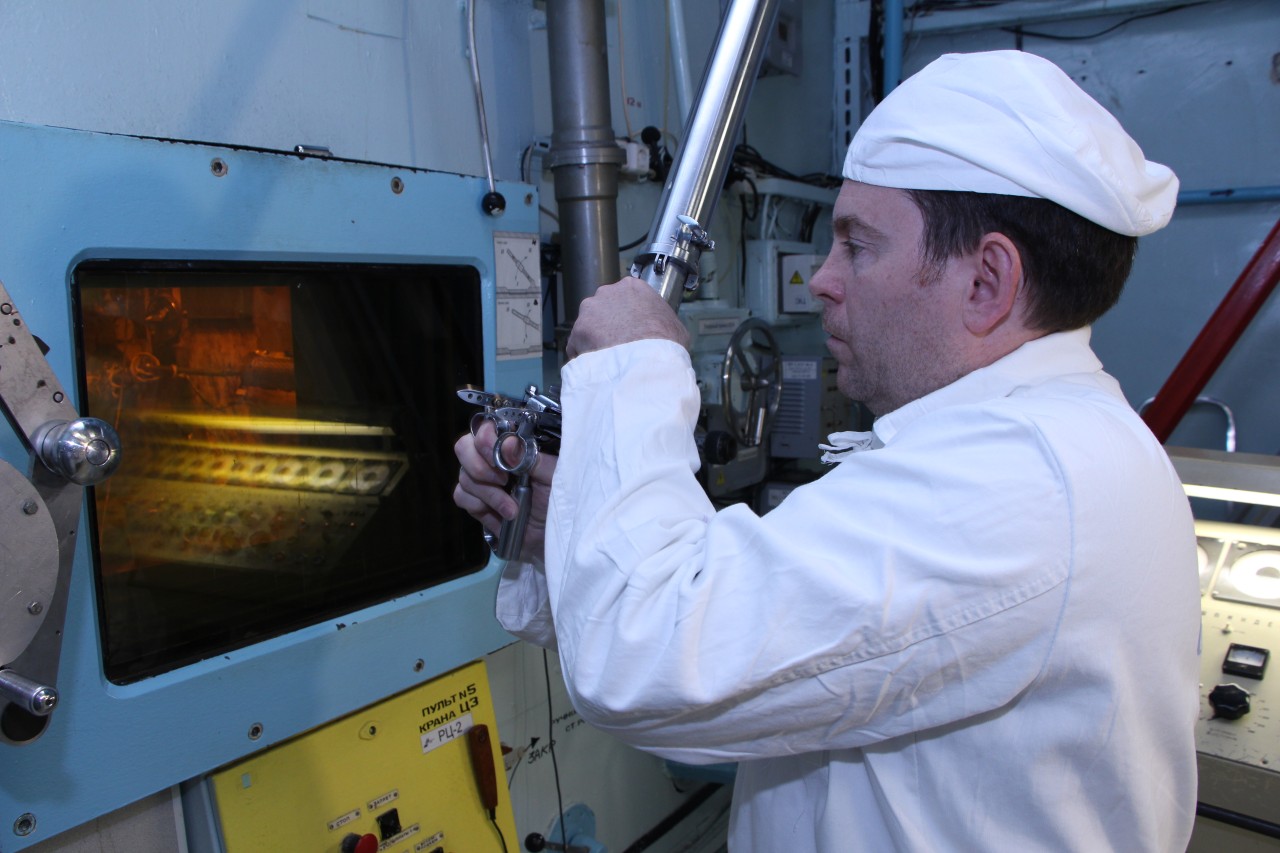 Russian nuclear utility Rosenergoatom (Electric Power Division of Rosatom) is expanding the range of radioactive isotopes produced at NPPs. In the near future, the production of the radioactive isotope samarium-153 will be launched at the Leningrad NPP. Radiopharmaceuticals based on samarium-153 (Sm-153) are widely used in nuclear medicine to reduce pain in bone metastases to provide palliative care to cancer patients, as well as in traumatology for chronic diseases of the musculoskeletal system.
Russian nuclear utility Rosenergoatom (Electric Power Division of Rosatom) is expanding the range of radioactive isotopes produced at NPPs. In the near future, the production of the radioactive isotope samarium-153 will be launched at the Leningrad NPP. Radiopharmaceuticals based on samarium-153 (Sm-153) are widely used in nuclear medicine to reduce pain in bone metastases to provide palliative care to cancer patients, as well as in traumatology for chronic diseases of the musculoskeletal system.
An appropriate licence has already been obtained for Sm-153, and the channels of the reactor at Leningrad unit 4 have been re-profiled with two additional irradiation channels. This will enable Rosenergoatom not only to produce Sm-153, but also to increase the ongoing production of iodine-131.
The range of isotopes currently produced at the plant include cobalt-60, iodine-125, iodine-131 and molybdenum-99. “Today, Russian industry is faced with the goal of ensuring technological sovereignty and transition to the latest technologies as soon as possible,” said Nikita Konstantinov, Deputy General Director, Business Development Director at Rosenergoatom. “We have done a lot of hard work to increase production capacity, obtained a justification for the safety of operating reactor units during the irradiation of starting materials for the production of medical isotopes, supplied equipment and redesigned channels. All this will allow us to increase the volume and expand the range of isotope products for the production of diagnostic and therapeutic radiopharmaceuticals for Russian and foreign markets.”
Rosenergoatom is currently one of the key producers of medical radioisotopes for the Russian market. The company accounts for more than 20% of the world's cobalt-60 produced at NPPs. In July two more irradiation channels will be installed at Leningrad unit 3, which will increase the possibility of producing those medical isotopes most in demand by 60%. Also, by the end of 2023, Leningrad NPP plans to introduce into production another new isotope, lutetium-177, use for diagnosis and targeted therapy of a number of oncological diseases. Isotope production technology is also being tested at the Kursk and Smolensk NPPs, which like Leningrad operate RBMK reactors. These are most appropriate for isotope production.
The development of radiation technologies today is one of Rosatom’s strategic goals. Rosatom sees a growing demand for their use in modern diagnostics in medicine, transport security systems, new water and air purification facilities, microelectronics, light industry, metallurgy and many other areas.
The official supplier of the products of Rosatom’s isotope sector to the international market and the key supplier of radiopharmaceuticals to the domestic market is V/O Izotop JSC, which supplied 170 foreign companies located in 50 countries, as well as 600 organisations in Russia.
Image courtesy of Rosatom


